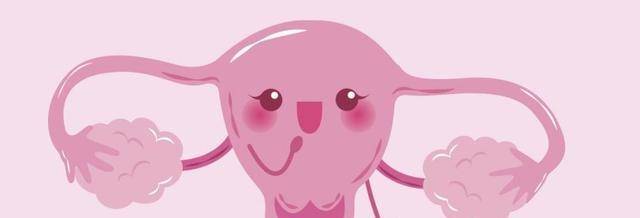After the age of 25, women begin to undergo changes. This is most evident in the skin. Apart from skin aging, if the major organs in the body are not well maintained, they will gradually decline, and the aging process will be particularly rapid. Especially the uterus and ovaries, which are female reproductive organs, if they are unhealthy, it can affect fertility and prevent women from having babies. If you want to realize the dream of being a mother, women should take some time to pay attention.
Methods for maintaining the uterus and ovaries in 25-year-old women?
1. Methods for maintaining the uterus
The uterus is the sole place for embryo development. For women, if this organ is affected in its development or experiences dysfunction, it will impact fertility. It can also trigger various diseases like cervical cancer, uterine fibroids, adenomyosis, and more.
– Practice careful contraception
At 25, women already understand intimate matters, and now with more open-mindedness, many women live with their boyfriends before marriage, engaging in sexual activities before marital life. If there is a lack of careful contraception during sexual activities, the likelihood of pregnancy is very high. Some women, for various reasons, do not use contraception or use it incorrectly, leading to unintended pregnancies, which may result in abortions. Due to encountering unreliable partners who are irresponsible and disappear after pregnancy, these young women lack the ability to raise children and opt for abortion.
Avoid abortions whenever possible, as each abortion causes a thinning of the endometrium. If the endometrium becomes as thin as a cicada’s wings, fertilized eggs entering the uterus won’t be able to implant and develop in the womb. Moreover, without proper care during or after an abortion, it can lead to uterine infections and inflammation. Therefore, abortions are harmful to the body and especially detrimental to the uterus. For a healthy uterus, women engaging in sexual activities must practice careful contraception.
– Watch your diet
Remember to avoid high-calorie, high-fat foods in your daily life, as they can elevate estrogen levels in the body, leading to excessive estrogen. A high amount of estrogen stimulates the uterus, making it susceptible to uterine fibroids. To maintain a healthy uterus, it’s better to stick to a light diet in your daily life. Consume more fresh vegetables and fruits and opt for low-fat fish meat in your diet.
2. Methods for maintaining the ovaries
If the ovaries are not properly maintained, women are prone to various gynecological diseases such as premature ovarian failure, ovarian cancer, ovarian cysts, etc. Failure to timely treat these diseases can cause greater damage to the body, ultimately impairing ovarian function, affecting ovulation, and leading to infertility.
– Reduce salt intake
Many food items in daily life are high in salt content, such as cured meats and pickled vegetables. During the curing process, a large amount of salt is added to prevent food spoilage and increase as the food item sits longer in the brine, absorbing more salt.
Women who frequently consume these foods will accumulate a high salt content in their bodies, impeding the excretion of body fluids. This can disrupt regular ovulation, and excessive daily salt consumption can severely damage the ovaries, ultimately causing menstrual irregularities.
– Supplement estrogen
A stable hormone level is essential for nourishing the ovaries. Therefore, it’s important to consume foods rich in estrogen to help elevate estrogen levels and keep the ovaries “vibrant” in everyday life.
The best method for supplementing estrogen is to consume soy and its products, as they contain genistein, which acts similarly to estrogen. Furthermore, this plant-based estrogen has a bidirectional regulatory effect, meaning it can lower elevated estrogen levels and raise lower estrogen levels, maintaining stable estrogen levels in the body.


